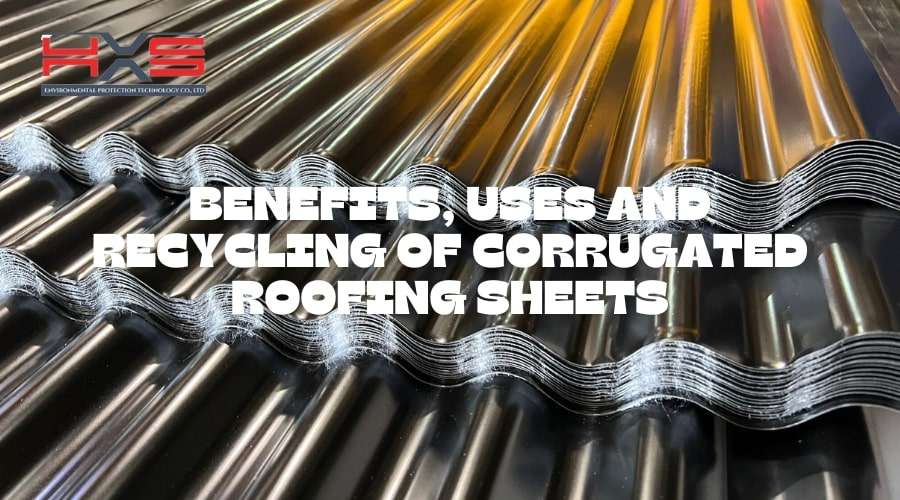
Corrugated roofing sheets are a popular and practical choice for various construction projects. Known for their distinctive wavy pattern, these sheets are made from materials such as galvanized steel, aluminum, and polycarbonate. They are designed to offer durability, strength, and aesthetic appeal. In this article, we will explore the benefits, uses, and recycling of corrugated roofing sheets, ensuring you have all the information needed to make an informed decision.
A corrugated roofing sheet is a building material distinguished by its parallel ridges and grooves extending along its length. This wavy configuration is formed by rolling or pressing the material, strengthening the sheet, and enhancing its load-bearing capacity. Due to the corrugation process, these sheets are significantly more durable than flat sheets of the same material, thus enabling them to withstand harsh weather conditions and support heavy loads more effectively.
The corrugated design enhances the sheet's strength, making it resistant to impacts, bending, and heavy loads. This durability ensures a long lifespan, often exceeding several decades, even under harsh environmental conditions.
Corrugated roofing sheets are highly resistant to adverse weather conditions, including heavy rain, snow, and wind. The grooves and ridges facilitate efficient water runoff, preventing water pooling and reducing the risk of leaks.
Compared to other roofing materials, corrugated sheet are relatively affordable. Their long lifespan and low maintenance requirements contribute to cost savings over time.
Despite their strength, corrugated roofing sheets are lightweight, making them easy to handle and install. This reduces labor costs and installation time.
Some corrugated sheets, especially those made from polycarbonate, offer excellent thermal roofing sheet properties, helping to maintain comfortable indoor temperatures and reduce energy costs.
Available in various colors and finishes, corrugated roofing sheets can enhance the visual appeal of any structure, whether it's a residential, commercial, or industrial building.
Ideal for homes, sheds, and garages, corrugated roofing sheets provide a durable and aesthetically pleasing roofing solution.
Widely used in warehouses, factories, and retail stores, these sheets offer reliable protection and a professional appearance.
Corrugated roofing sheets are commonly used for barns, stables, and other agricultural buildings due to their durability and weather resistance.
Factories, workshops, and industrial units benefit from the strength and low maintenance requirements of corrugated sheet insulation.
Lightweight and easy to install, corrugated roofing sheets are perfect for temporary shelters, exhibition stands, and outdoor events.
Corrugated roofing sheets are not only durable but also environmentally friendly. Many materials used in their production, such as steel and aluminum, are recyclable. Here’s how the recycling process works:
1. Collection: Old and discarded corrugated roofing sheets are collected from construction sites, demolition projects, and recycling centers.
2. Sorting: The collected sheets are sorted based on their material type (e.g., steel, aluminum, polycarbonate).
3. Cleaning: The sheets are cleaned to remove any contaminants, such as dirt, paint, or coatings.
4. Processing: Metal roofing sheets are melted down and reformed into new products, while polycarbonate sheets can be shredded and reused in various applications.
5. Reformation: The recycled materials are used to manufacture new corrugated roofing sheets or other products, reducing the demand for raw materials and minimizing environmental impact.
Corrugated roofing sheets offer a versatile, durable, and cost-effective solution for a wide range of construction projects. Their benefits, including strength, weather resistance, and aesthetic appeal, make them a preferred choice for residential, commercial, agricultural, and industrial applications. Additionally, their recyclability ensures that choosing corrugated roofing sheets is an environmentally responsible decision. By understanding the benefits, uses, and recycling process of corrugated roofing sheets, you can make an informed choice that meets your roofing needs while contributing to sustainability.
What is the effective cover of a corrugated sheet?
The effective cover of a corrugated sheet refers to the actual area it covers once installed, excluding the overlap and gaps between sheets. Typically, this dimension is slightly less than the total sheet width due to the corrugation pattern. For example, if a corrugated sheet is designed to cover a width of 1 meter, the effective cover might be around 0.9 meters. This effective coverage ensures proper fit and protection against elements while allowing for secure installation.
How much does it cost to install corrugated metal roofing?
The cost to install corrugated metal roofing typically ranges from $5 to $10 per square foot, depending on factors such as material quality, roof size, and installation complexity. For a standard 1,000-square-foot roof, you can expect to pay between $5,000 and $10,000. This price usually includes both materials and labor. To get an accurate estimate tailored to your specific needs, it's best to consult with a local roofing contractor. Get a free quote today!
The construction sector also needs support as the world advances in d...
READ FULLWhat is Polyurethane Foam? Polyurethane...
READ FULLAluminum channels are integral components in a multitude of industries, valued for thei...
READ FULL